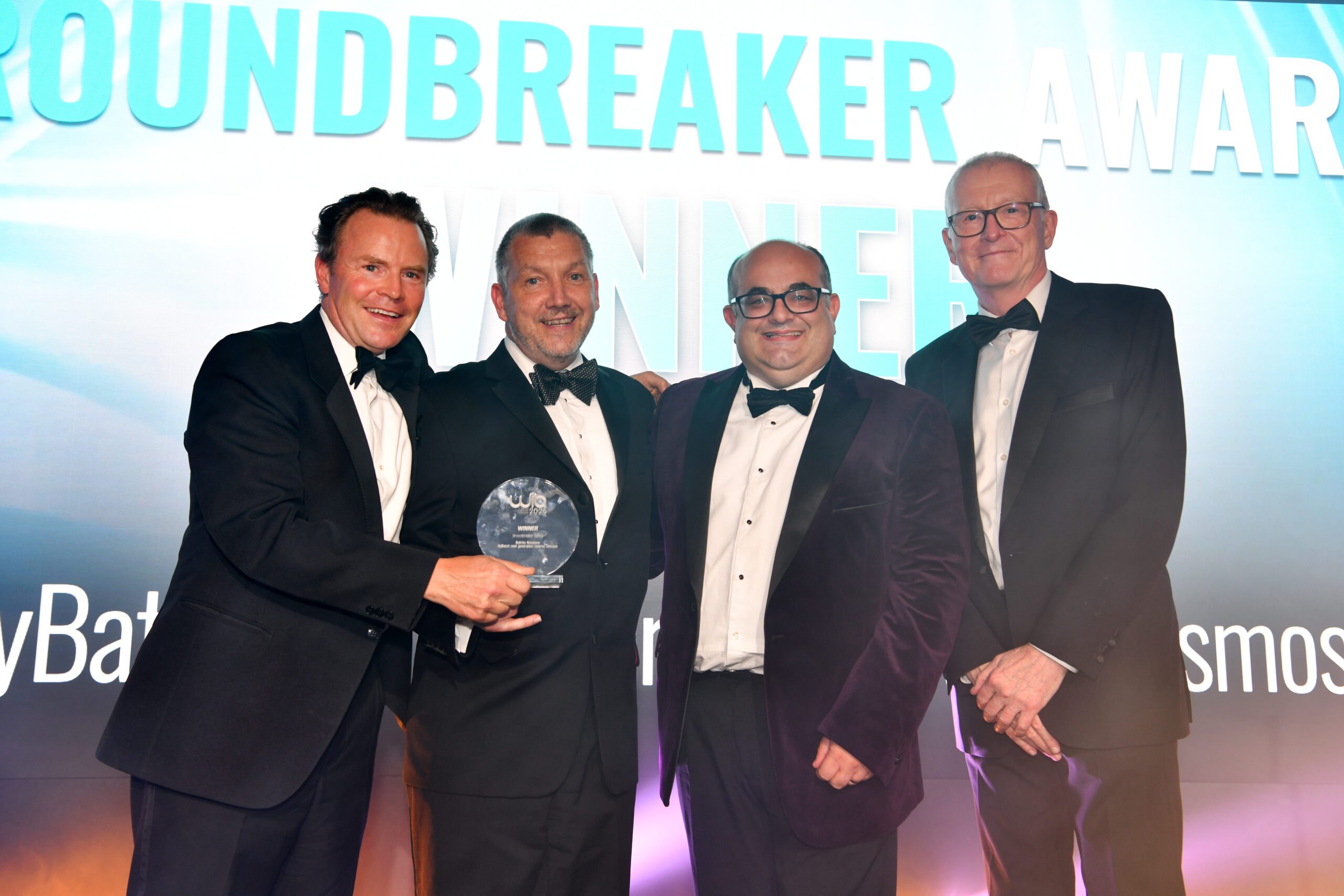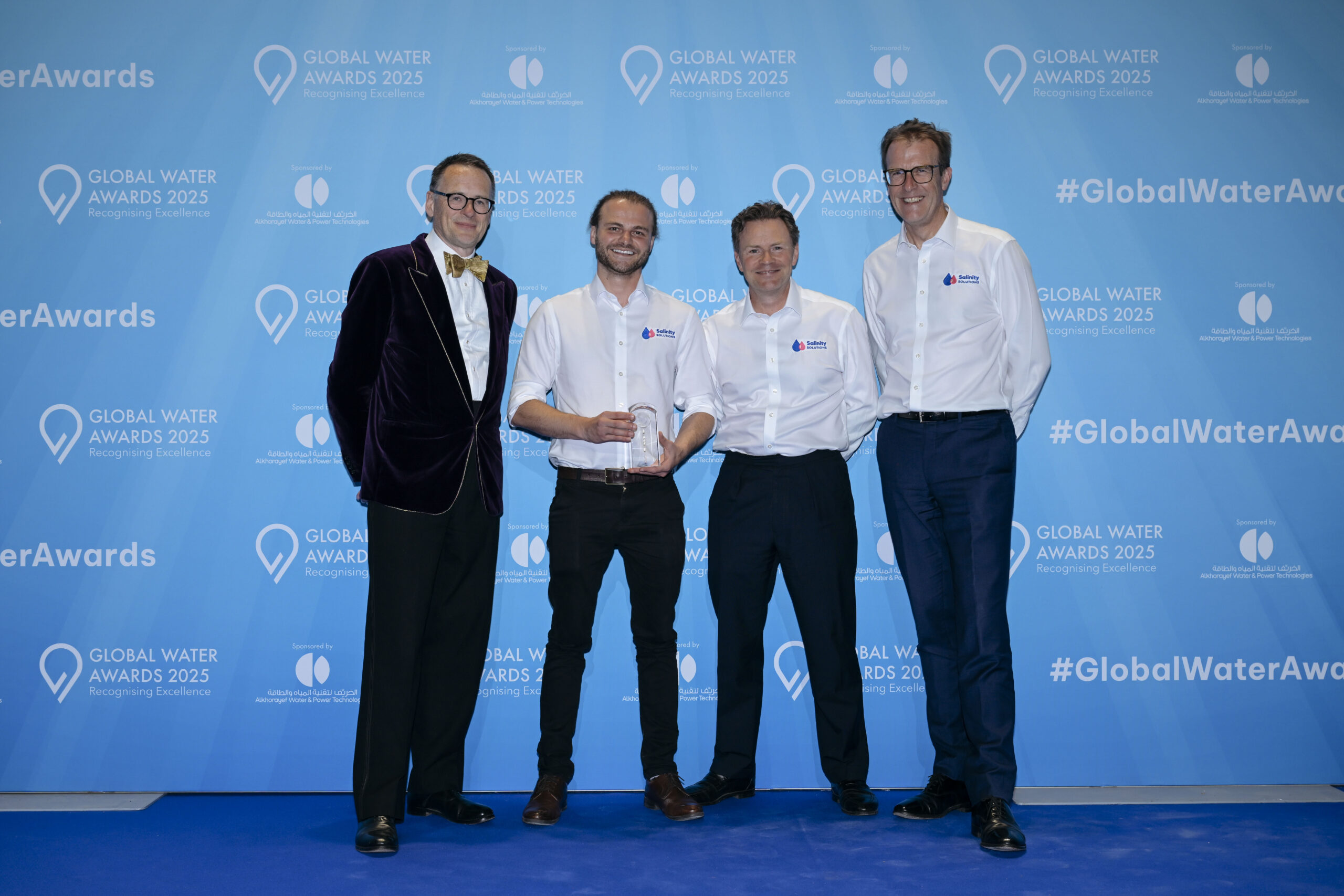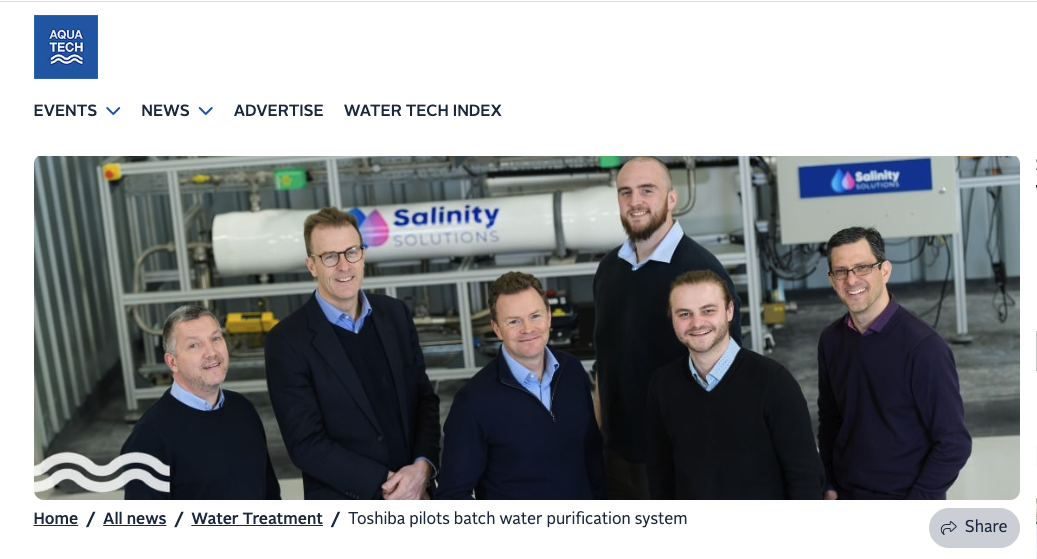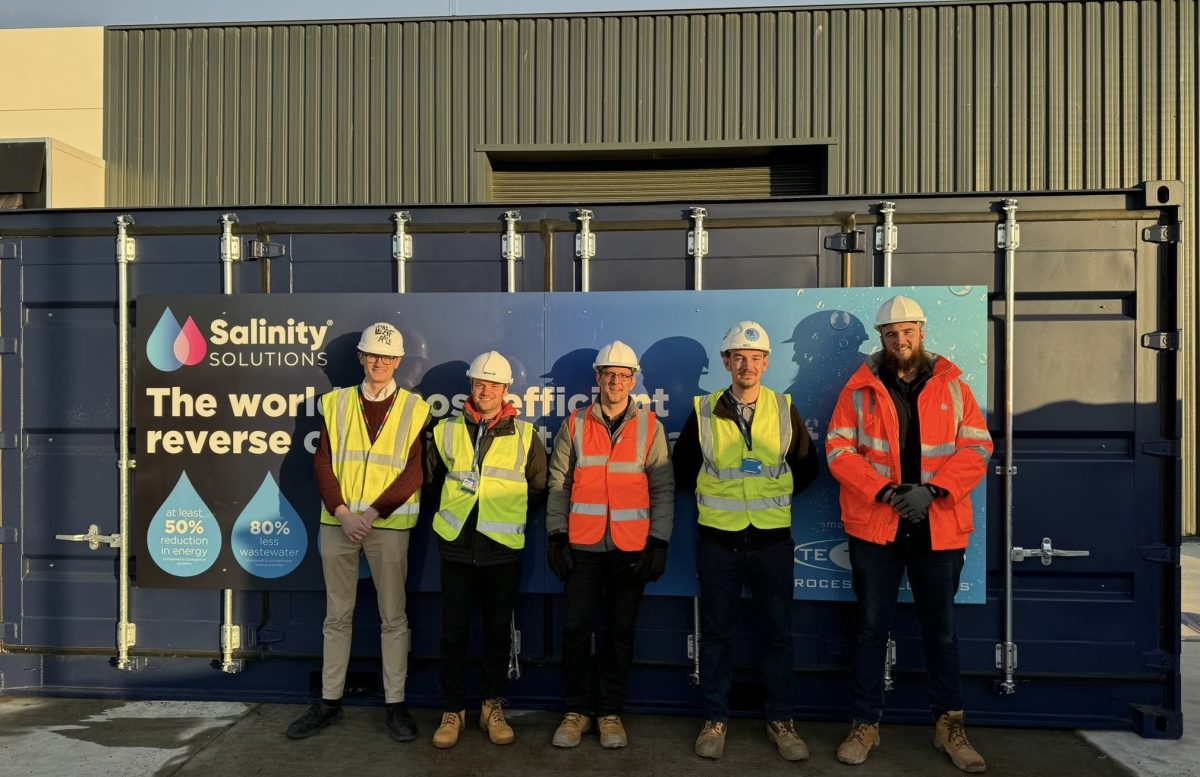Awards
And it’s another win for team Salinity!
It’s a hat trick! We’ve only gone and won again. Three years in a row and we couldn’t be more proud to have won at this year’s prestigious Water Industry Awards 2025, winning ‘Groundbreaker of the Year’. The Groundbreaker award is for a product or technology that is truly ground-breaking and has made its mark […]
June 26th 2025




